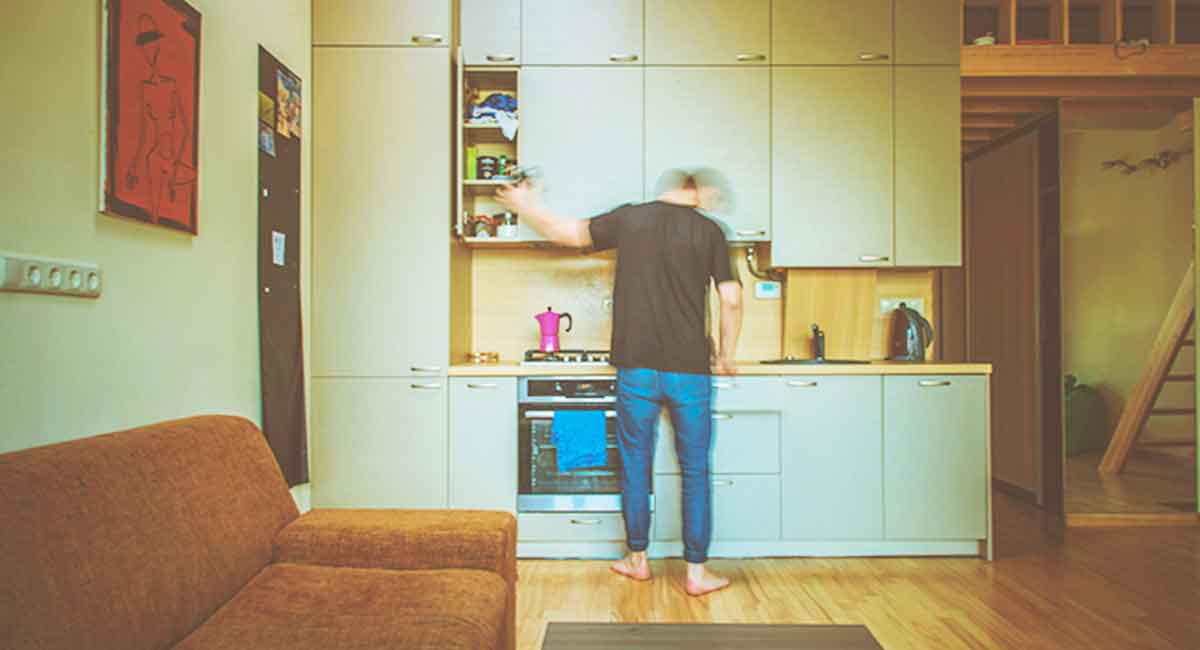若き学生時代に急遽海外放浪の旅に踏み出し、その経験から外国人賃貸業界に深い興味を抱くようになったのが、イチイ社長・荻野氏です。このコラムでは、そんな荻野の体験をコラム形式でお届けします。
※本コラムは『異文化共生住宅』をテーマにイチイ社長 荻野が2005年1月から2006年3月まで週刊住宅に寄稿したものです。
80年代 東京賃貸借事情
増加の一途をたどる在住外国人の数。2003年末の外国人登録者数は191万人と80年(外国人が増えはじめた)の78万人から113万人もその数を増やし、98年から03年までの5年間は年平均8万人増え合計で40万人増えている。
外国人が増えはじめた80年代“外国人向け賃貸”というと、当時は外資系商社・金融関係向けの高級マンションがイメージされた。そのような高級マンションを求めていた外国人はごく一部であり、大半は日本人と変わらぬ普通の住居を求めていた。当時、英会話学校、日本語学校と提携していた当社も、ごく普通の賃貸物件を先生、生徒に斡旋していた業者であった。
80年、英字新聞に「東京での部屋探しをお手伝いします。賃料1ケ月15,000円から」こんな3行広告を出してみた。当時はまだこの手の安アパートが結構あった。広告を見た外国人客からの電話が殺到。それもそのはず、外国人向け他社の広告は“ゼロ”が2つも多く、賃料1ケ月100万円以上のものばかりで普通の外国人客には無縁のものだったからだ。広告のおかげで、多くの英会話教師、留学生、就学生、そして客員教授として招聘された海外の大学教授などに部屋を決めてもらった。
ある時、国立(くにたち)の大学に赴任するパキスタン人教授の部屋探しをした。朝から、地元の不動産会社を20件ほど回り「日本で招聘し、滞在費用も保証されている大学教授である」と説明しても、外国人であることを理由に入居を断られた。夕方近くに、これが最後と飛び込んだ会社で、積極的に対応してくれる女性社長に助けられ部屋を決めることができた。大学教授といえども、外国人にとって東京での部屋探しは大変であった。
まだ、80年代は外国人もそう多くなく、高額賃貸などを除いて一般賃貸では外国人入居に慣れている貸主、不動産業者は少なかった。貸主は経験がないことの不安さで、積極的に入居対応ができず、業者も具体的な受け入れ方法や問題発生時の解決方法が分らなかったため対応が消極的であった。皆が経験不足、そして情報不足であった。
在住外国人の数が200万人に近づこうとしている。状況は改善されたのだろうか。前回まで、外国人からも“わかりやすい賃貸借”として支持される“ゲストハウス”を取り上げてきたが、外国人の多くは一般の賃貸物件を利用している。急ぐべきは一般の賃貸物件における外国人対応のようである。
Coexistence Housing in a Borderless Age: Housing Situations for Foreigners
Rental Situations in Tokyo in the 1980s
The number of foreign residents has been steadily increasing. By the end of 2003, the number of registered foreigners was 1.91 million, up from 780,000 in 1980 (when the number of foreigners began to increase) by 1.13 million. Between 1998 and 2003, the number increased by an average of 80,000 people per year, totaling an increase of 400,000 people.
In the 1980s, when the number of foreigners began to increase, “rentals for foreigners” typically conjured images of luxury apartments aimed at expatriates working for foreign corporations and financial institutions. However, only a minority of foreigners sought such luxury apartments; the majority were looking for ordinary housing, similar to what Japanese people would seek. At that time, our company, in partnership with English and Japanese language schools, was a broker offering ordinary rental properties to teachers and students.
In 1980, we placed a three-line ad in an English newspaper saying, “Help with finding a room in Tokyo. Rent starting from 15,000 yen per month.” At that time, there were quite a few affordable apartments available. The ad prompted a flood of calls from foreign clients. No wonder, since other ads targeting foreigners had “two more zeros,” with rents starting from over 1 million yen per month, which was out of reach for ordinary foreign clients. Thanks to the ad, we were able to find rooms for many English teachers, students, professors invited as guest lecturers, and others.
Once, we were searching for a room for a Pakistani professor who was going to work at a university in Kunitachi. We visited about 20 local real estate agencies from morning and explained that he was a university professor invited to Japan with guaranteed living expenses, but we were refused entry at each one because he was a foreigner. In the late afternoon, at the last agency we visited, a proactive female president helped us secure a room. Even for a university professor, finding a room in Tokyo was challenging for foreigners.
In the 1980s, there weren’t as many foreigners, and apart from high-priced rentals, landlords and real estate agents familiar with renting to foreigners were few. Landlords were hesitant due to the lack of experience, and agents were passive because they didn’t know specific acceptance procedures or how to resolve issues when they arose. Everyone lacked experience and information.
As the number of foreign residents approaches 2 million, one wonders if the situation has improved. Until now, we have discussed “guesthouses” as “easy-to-understand rentals” supported by foreigners, but many foreigners use ordinary rental properties. It seems urgent to improve the response to foreigners in ordinary rental properties.
无国界时代的异文化共生住宅:外国人的住房状况 国际化社会的应对(第一部分)
80年代东京的租赁情况
居住外国人数量的持续增加。到2003年底,登记的外国人数为191万人,从1980年(外国人开始增加的时期)的78万人增加了113万人。从1998年到2003年的五年间,平均每年增加8万人,总共增加了40万人。
在80年代,外国人数量开始增加时,“面向外国人的租赁”通常会让人联想到专门为外资企业和金融机构工作的外籍人士提供的豪华公寓。然而,寻求此类豪华公寓的外国人只是少数,大多数人寻求的是与日本人无异的普通住宅。当时,我们公司与英语学校、日语学校合作,作为中介为教师和学生提供普通的租赁物业。
1980年,我们在英文报纸上刊登了一则三行广告:“帮助您在东京找房间。租金从每月15,000日元起。”那时,还有相当多的经济型公寓可供选择。广告引来了众多外国客户的电话。难怪,因为其他针对外国人的广告“多了两个零”,租金从每月100万日元起,这对普通外国客户而言完全是遥不可及的。感谢这则广告,我们为许多英语教师、留学生、受邀作为客座教授的海外大学教授等找到了房间。
有一次,我们为一位即将赴国立(Kunitachi)大学工作的巴基斯坦教授寻找住宿。从早上开始,我们走访了大约20家当地房地产中介,尽管我们解释说他是受日本邀请、住宿费用得到保证的大学教授,但因为他是外国人,我们在每家中介都被拒之门外。直到傍晚,在我们最后一次尝试的一家中介,一位积极主动的女性总裁帮助我们找到了房间。即便是大学教授,对外国人而言,在东京找房也是一项挑战。
在80年代,外国人还没有那么多,除了高价租赁外,习惯于租给外国人的房东和房地产中介不多。房东因缺乏经验而犹豫不决,中介也因不了解具体的接受程序或问题发生时的解决方法而表现消极。大家都缺乏经验和信息。
随着居住外国人数量接近200万,人们不禁要问,情况是否有所改善。到目前为止,我们讨论了作为外国人支持的“易于理解的租赁”——“客栈”,但许多外国人使用的是普通的租赁物业。改善普通租赁物业中的外国人应对措施似乎是迫在眉睫的。
荻野社長ブログはコチラ▶ https://co-lifestyle.net

